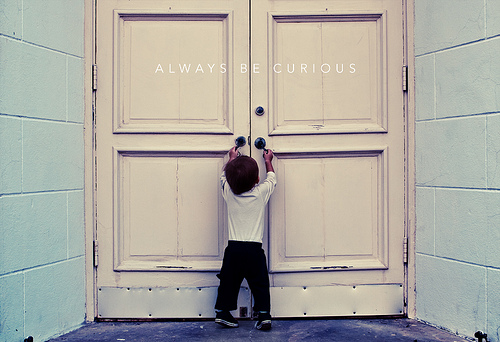The Editorial Burden That Weighs on the Author
In 1957, an editor at Lippincott publishing house received a manuscript on her desk from an unknown author who had written what was mostly a string of short stories. Her task? To work with the author to help her get the manuscript in shape so that it would be marketable and read well.
This was the job of in-house editors back then. Often manuscripts like these would be given to them to whip into shape, and Tay Hohoff was given this enormous task of working with this unknown author—an undertaking that took two and a half years—until finally, the manuscript was ready for publication.
Tay is noted as saying, “The editorial call to duty was plain. This author needed professional help in organizing her material and developing a solid plot structure.” This was something young Harper Lee knew little how to do, but with the help of an experienced, knowledgeable editor, she was able to fashion To Kill a Mockingbird into a masterpiece—but it took hard work and professional help.
Lee clearly needed guidance—but she got it. She rewrote the novel three times over the next two and a half years. At one point, she threw the manuscript out the window and called Hohoff. Her editor persuaded her to go outside and gather the floating pages.
Don’t Be Fooled
Don’t be fooled for a moment that Lee wrote this book off the top of her head in perfect shape, not needing any revision. Yet, many writers today feel this is exactly all they need to do. Just sit down, pump out a novel, do some rewriting, and send it off to an agent or publisher with the expectation that it will sell, no problem. And why not? It’s a masterpiece, right?
Authors may say to themselves: “I’ve taken enough writing courses to know how to put a novel together. I’ve attended some writing workshops and read a bunch of books on the writing craft. I even have a critique group of other authors, who give me lots of great feedback.”
That all sounds well and good, and is much more than Harper Lee had back in the 1950s when she sat down to write the stories that would eventually become the novel that won the Pulitzer Prize for literature in 1961. Fortunately for her, though, someone on that editorial team saw the potential and was willing to give her a shot at refashioning the book.
Those Days Are Gone
And that was how it was done back in the day. Editors at publishing houses were expected to be, well, editors! A large part of their job was to take an unruly, rough manuscript and help turn it into a polished, sellable novel. Sadly, those days are gone.
Sure, there are editors at publishing houses who work with a signed author to help them “macro edit,” and they will often write dozens of pages of comments to the author telling her what changes they want. So in a way, that’s not all that different from Harper Lee’s day.
But the true difference now is that editors are not given the time to spend nearly three years with an author to help them keep reworking their book. The have a myriad of projects, money is tight, and production is on a tight schedule. Which means two things.
- One: Publishing houses do not take time to nurture and help a new author along to help her find her style, voice, and learn proper structure just based on a good idea or plot. There are hundreds of thousands of novels written each year, many of which filter through literary agents, who then send their top picks to editors at publishing houses.
One of my agents told me she only took on about seven fiction writers a year although she got more than three hundreds queries a week from authors seeking representation. Take that small percentage of lucky authors and look at this next step: my agent then sends out a queries and proposals for those authors to a number of acquisitions editors. Her editor at Random House, for example, says she looks at fifty projects a week from agents. But how many titles does she choose and publish each year with her imprint? Five. Clearly the odds are greatly against any author getting a publishing contract with a big house.
- Two: Due to this huge pool of competition and the fact that editors no longer have the time or the interest in developing an author or honing a manuscript, publishers expect authors to do all the hard work themselves. Authors are now expected to present a tight, error-free manuscript that is essentially ready to publish. In fact, numerous editors have said that if they find a copy error in the query letter or even on the first page of the manuscript, they will stop reading and round-file it. That’s sounds terribly unfair, doesn’t it? But why should an editor, with a choice between a clean, ready-to-go great novel and a sloppily written, poorly edited one choose the latter?
Writers are encouraged to take the time and, yes, spend the money, to get their work professionally edited before they submit to agents and/or publishers. This is what is expected.
Without professional assistance, chances are you will spend years of your time, years filled with frustration and confusion, getting rejection letter after rejection letter and not know why. Many of my clients complain to me that this is their situation. They’ve been submitting their proposal and chapters for years but never get any interest, and no one tells them what’s wrong.
Writing a Novel Is Hard!
Writing a novel is a very difficult thing to do. Novel-writing is a craft and art. Just like any other, it takes thousands of hours of hard work and applying new technique to learn how to do it well. This can seem like an insurmountable learning curve, but hiring a writing coach to help you along is said by many great writers and instructors to be the best use of your time and money, if you are serious about becoming a great novelist.
We would consider foolish a person who keeps applying for a high-tech job in competition with hundreds of experiences techs but who has no experience in the field. So what about aspiring writers who have not been coached or had their work professionally critiqued and edited jockeying to get their novel noticed?
Think about it. If you mean to spend years of your life working toward becoming a successful novelist, don’t stumble blindly in the dark. Take writing classes and workshops, study writing craft books, find competent readers (preferably published authors) to critique your work, but above all, set aside the funds to invest in professional critiques and editing.
People spend tens of thousands of dollars for their education as they pursue a degree or certification in a field of study. There is a cost that comes with becoming proficient at anything, and that includes writing. Don’t cheat yourself. The burden of the craft is on your shoulders—not on anyone else’s.
Share your thoughts? How important is a cleanly edited book to you as a reader? A writer?
Feature Photo Credit: woodleywonderworks via Compfight cc












First things first: I love and follow this blog for its top-quality content, generosity of spirit, and great advice. Thank you for keeping us all on our toes. I NEVER assumed I could call myself a bona fide writer until I learned the craft of writing first and foremost, including grammar and punctuation. Of course, time is the evolving factor. Nobody wants to hire editors or proofreaders any more (too rushed, not enough money, or both), and it’s harder for a writer to spot his or her own mistakes.
Yes, no one wants tot spend the time or money to get their work edited or proofread. I actually do so professionally part-time and it is pulling teeth to get anyone to pay anything reasonable. They honestly think that it will be an easy read and just correcting some spelling and punctuation.
Susan, this is an excellent piece! Even though I’m published in non-fiction, EVERY project I work on, I’ve worked with an editor, including some of my articles. I’m now on my sixth book, my third in historical fiction and have author, Jacquelyn Mitchard as my editor for this current project. She’s tough and I’ve had days like Harper Lee where I want to hit ‘delete’ and forget the whole thing. But despite the frustration, I continue to learn in spite of myself!
Thanks for doing this piece…it’s a good reminder for me not to hit the ‘delete’ key on those awful days.
Even MJ Rose has a tag line at the end of her emails that apologizes for not being able to see her own mistakes!
Gaye Mack,MA
I couldn’t agree more. As authors, we need to seek assistance of competent editors and writing coaches. It’s an essential part of the process. Plus — added bonus — it’s tremendous fun to work with a writing coach and makes the process less lonely and more efficient. The need for these services hasn’t changed, but authors need to realize that they’re going to have to source these services themselves. Which ultimately puts them in control of who they hire — a very good thing.
A cleanly-edited book is as important as a compelling plot. If I love the story, but keep stumbling over the grammar mistakes and typos, they’ve lost me. I feel like they don’t know what they’re doing as a writer. Great post.
I’ve never been able to figure out the “editors no longer edit” mantra, as my experiences with four Big Five editors have been very, very thorough. But I think with this example I’m beginning to understand. Perhaps what is meant is editors no longer have the time to teach writers the basics?
Right, once you are contracting with a big house, you will have editors helping, but not in a development way at all. I know one editor who got paid a lot to spend six months with authors like Tom Robbins and Hunter Thompson (in places like the Bahamas) to actually create and plot out their next book. Also the timetable is brutal. I had two weeks to do major revisions for Zondervan. I have author friends who’ve been given twenty single-spaced pages of corrections, asking for new chapters, etc., with only a two-week turnaround. That’s a whole lot different from two years. But production schedule is tight. Some may get more time than others, but yes, things are way different. The bottom line is money, not developing new talent and producing a great work of fiction.
I find it astounding that editors did the level of editing/coaching you describe in Lee’s case, especially when working with a never before published writer. But then, maybe Lee got that kind of treatment because of her friendship with Capote. I remember reading about Thomas Wolfe’s editorial relationship with Max Eastman at Scribner’s. This is how the story goes (as I read it years ago): Wolfe wrote standing up in his kitchen, using the refrigerator as his desktop. (He was a tall man.) When he had filled a page of 8.5 X 14 yellow legal, he tore off the page and tossed it on the kitchen floor and kept writing. When he had finished the day’s work, he scooped up the pages and put them away. The next day he followed the same procedure. And so on until the novel was finished. These handwritten, out-of-order, crumpled pages Wolfe sent off to Eastman by post. Eastman then began the long, time-consuming work of making the ms. into a novel.
True? I don’t know, but it does paint a picture-perhaps in the extreme–of the good old days of editorial muscle and perseverance. And a time when, somehow, there was just a whole lot more money in the industry.
Thanks for your thoughts on this issue, Ms. Lakin. In my experience as a writer (not yet as one who has published a novel, but hopefully this year or early next), nothing has served me better than working as an editor of others’ writing. I’ve been blessed to be able for the last 17 years to be an editor. And I’ve been the old fashion kind, actually, both editing developmentally, rewriting, and doing heavy copy-editing and writer coaching. The experience has transformed my writing, my sensitivity to audience, my ear for language. So, perhaps, one good thing young writers can do to improve their own writing is to join a writers’ group with the intention of helping others as much as to receive others’ help.
CS,
Having just self-published my first novel, I hear what you are saying. After hurrying the ebook version of my novel out there and then being delayed getting the print version out because of technical proof issues with CreateSpace, I finally slowed down enough to read their printed proof copy and for some reason (probably seeing it on paper after being so used to seeing it just on screen) I saw it with fresh eyes and noticed problems. It wasn’t so much typos (there were only a handful). It was more flow and story logic. I tried using an editor, but she turned out to be more of a proofreader than a story editor so I terminated the agreement early on (granted she was at the low-end moneywise). I ended up going it alone and I guess I suffered for it, though I’m now happy with my revision which will go into the print version when it finally gets done and replace the ebook version already out.
Anyway, while I’d love to write the next novel in the series, I’m not sure I want to put myself through this self-publishing thing again. Sales have been so-so so far without me making much of a marketing push yet. It’s just so much damn work and getting professional help seems so expensive.
My question is: is it possible in the modern publishing world to get a deal using just a very polished proposal/synopsis for a yet-unwritten novel with a well-done self-published novel as a sample of what I’m capable of?
Thanks,
Nic D’anna
All of you,
I have to agree with Lorrie Beauchamp on the quality of the responses, here. And, I believe the editorial burden article is spot on from my experience and the collective wisdom of others who write. I wrote what’s called a first person account. It took three years of full-time writing and that is a story in itself. I’ve methodically edited it for content and punctuation about ten times. More than a dozen people have given me feedback about it. And I have had a college English professor edit it. I’ve dipped into the “how to book”, APE, authored by the well-respected Guy Kawasaki and also Shawn Welch (a helpful nuts and bolts read). I’ve always intended my work to be a self-published book. I’m presently selecting photos and writing photo captions. And what all of you have written gives me good pause for thought. Even with all of that, I absolutely believe we should all persevere in finding new ways to edit and publish.
One question: how do you all feel about hiring people to write blurbs for your work to appear in the front of the eBook? I’m currently not too favorable towards the concept.
Thanks for being here,
John